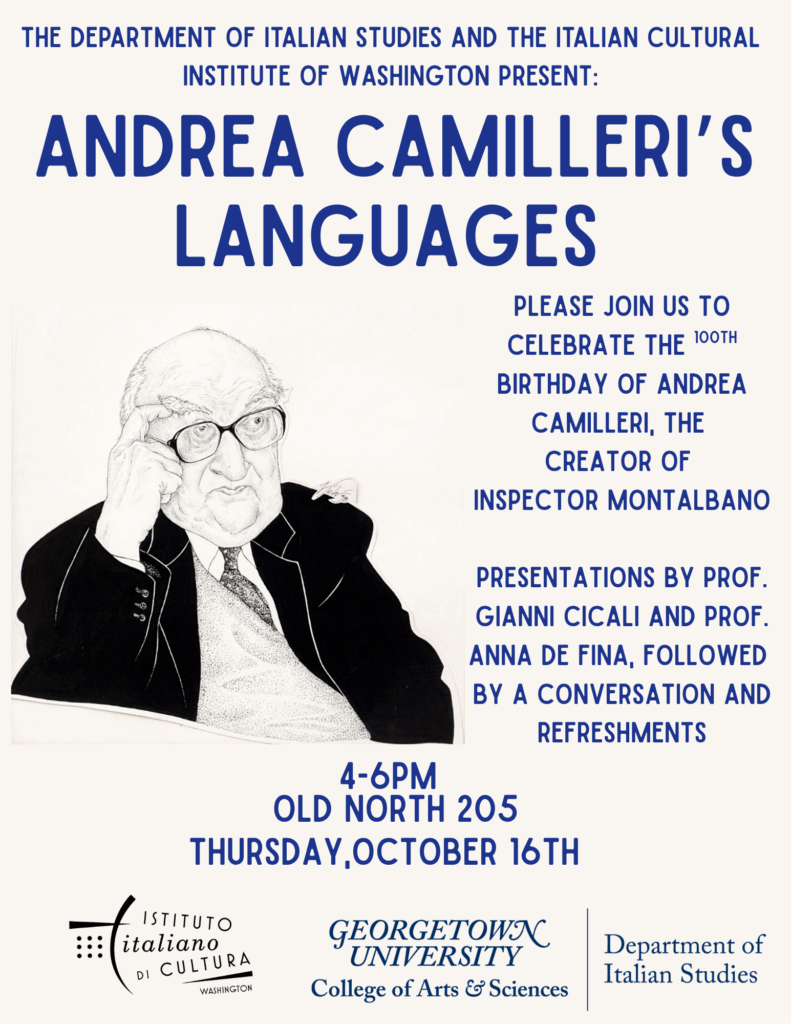Andrea Camilleri’s Languages
Please join the Department of Italian Studies and the Italian Cultural Institute of Washington
for a celebration of Andrea Camilleri’s Languages, with two presentations followed by a conversation and refreshments.
The first talk is titled: “Camilleri between Theater and Television.” It will be delivered by Professor Gianni Cicali (Florence, Italy) who is a specialist in History of Italian Theater (Renaissance, Baroque and 18th-century). He holds an Italian “laurea vecchio ordinamento” (M.A. equivalent) and doctoral degrees from both Italy (Università di Firenze) and Canada (University of Toronto). Read an abstract below:
Due to family ties, Camilleri became involved in theater from a young age. He attended the best theatre school, wrote for the stage and worked as a director. He also incorporated theatrical elements into television productions he was involved in. This lecture will explore Camilleri’s theatrical career within the cultural and political context of his era.
The second talk is titled: “Andrea Camilleri: Between Language and Dialect.” It will be delivered by Professor Anna De Fina, who holds a Laurea in Lingue e Letterature Straniere from Palermo University, an M.A. in Linguistics from Esculea Nacional de Antropología e Historia in Mexico, a Master of Philosophy in Linguistics from Cambridge University (U.K.), and a Ph.D. in Linguistics from Georgetown University. Read an abstract below:
This talk begins with a brief overview of the role of dialects in the linguistic evolution of Italy. It then turns to Andrea Camilleri’s distinctive use of dialect, which he famously described as “an invented language.” De Fina will explore how this hybrid idiom functions within the celebrated Montalbano novels, highlighting the ways in which Camilleri harnesses dialect to shape narrative voice, convey cultural nuance, and enrich characterization. Finally, De Fina will examine the strategies he employed to ensure that these dialectal expressions remained accessible and engaging to a broad readership.
